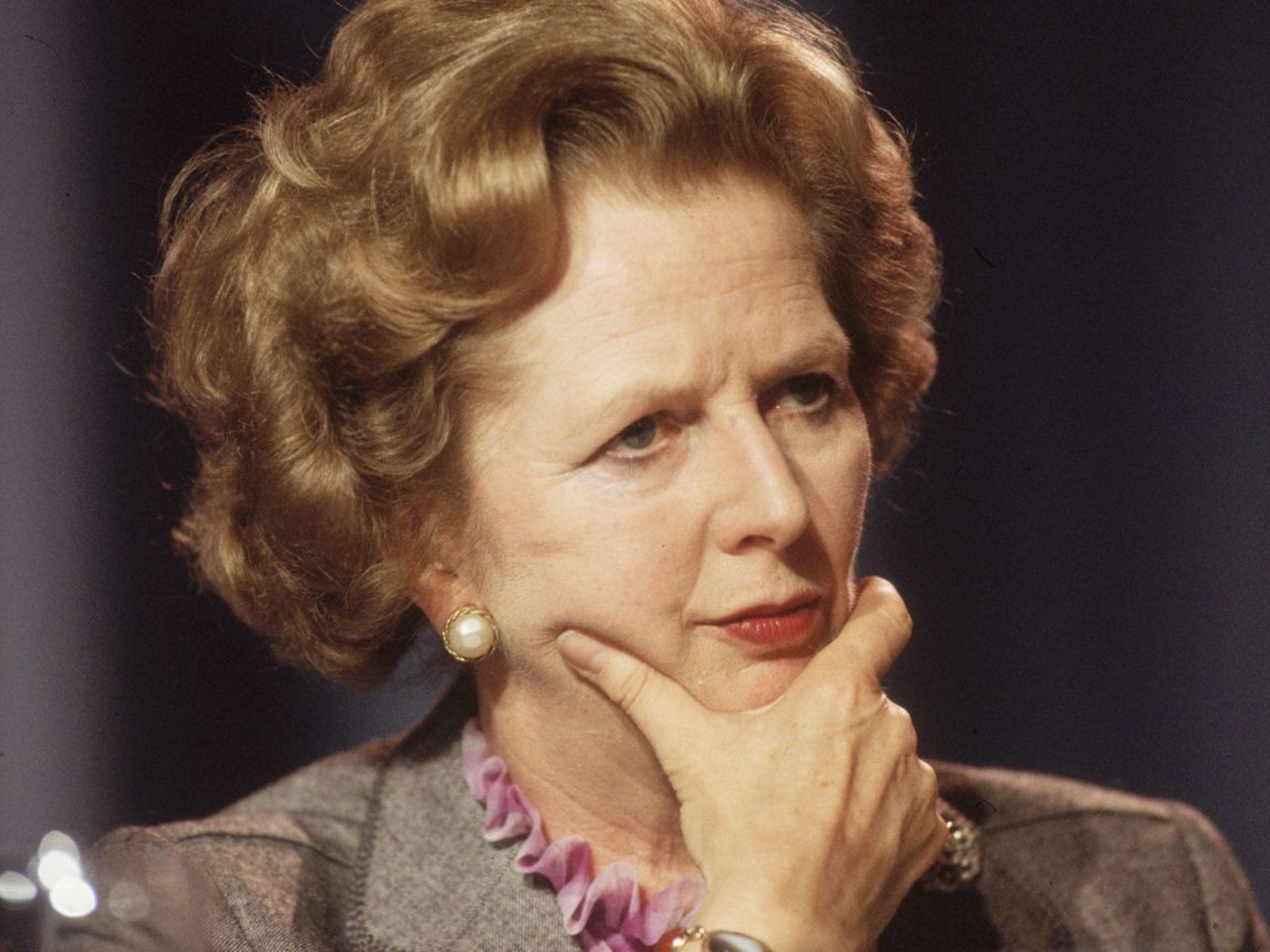God and Mrs Thatcher: The Battle for Britain's Soul by Eliza Filby, book review
How Thatcher transformed religious doctrine into political doctrine

Your support helps us to tell the story
From reproductive rights to climate change to Big Tech, The Independent is on the ground when the story is developing. Whether it's investigating the financials of Elon Musk's pro-Trump PAC or producing our latest documentary, 'The A Word', which shines a light on the American women fighting for reproductive rights, we know how important it is to parse out the facts from the messaging.
At such a critical moment in US history, we need reporters on the ground. Your donation allows us to keep sending journalists to speak to both sides of the story.
The Independent is trusted by Americans across the entire political spectrum. And unlike many other quality news outlets, we choose not to lock Americans out of our reporting and analysis with paywalls. We believe quality journalism should be available to everyone, paid for by those who can afford it.
Your support makes all the difference."Economics is the method," Margaret Thatcher declared in 1981, "but the object is to change the soul." The story of the future Prime Minister's frugal Methodist upbringing above the shop in Grantham has been told many times before.
But in this thoroughly researched and thoughtful study, Eliza Filby demonstrates that previous biographers have underestimated the extent to which her politics were rooted in her religious faith and her particular understanding of Christian theology, derived from her preacher father.
It was not just that Alfred taught her the virtues of hard work, thrift and service. His sermons that she heard as a girl in Finkin Street chapel are firmly based on a doctrine of individual salvation ("The Kingdom of God is within you" – the last word underlined three times) which she later transformed into a political doctrine of individual responsibility and self-reliance. Socialism, she said, was wrong because it replaced individual responsibility and personal charity with collective action and reliance on the state. Freedom was morally superior because, as she insisted in 1983, "the heart of the Christian message is that each person has the right to choose" – and, one might add, the devil take the hindmost.
This High Tory interpretation brought her into repeated conflict with the churches – particularly the Church of England – which had come to see their mission less in saving souls than in defending those left behind by economic change. Mrs Thatcher regarded this – as her successors still do – as beyond their proper sphere, and did not hesitate to tell them so. "Christianity," she rebuked the Church of Scotland in her famous "Sermon on the Mound" in 1988, "is about spiritual redemption, not social reform."
On another occasion she summoned the bishops to Chequers to lecture them on the meaning of Christianity. She was corrected by the Bishop of Chester: "I'm afraid you misunderstand, Prime Minister. Christianity is not about freedom, it is about love." But love was distinctly lacking from her creed, which was rooted in the Old Testament ("the history of the law") rather than the New ("the history of mercy") – which was why she had so much more time for the Chief Rabbi than for the established church. There was in fact remarkably little place for Jesus in her theology. Of course we can never know the exact nature of her private faith. But Filby reveals that she never took Communion, on the ground that she was never formally a member of the Church of England.
Thatcherism triumphed, politically and economically. But if her mission was to change Britain's soul, she failed entirely. The prosperity her economic reforms released was founded not on thrift and hard work, but on credit, financial speculation and record levels of personal debt.
"Because we see man as a spiritual being," she once claimed, "we reject the Marxist view which gives pride of place to economics." She personally disapproved of casino capitalism and ostentatious consumerism. Yet her professedly Christian policies promoted a materialist culture of self-enrichment and escalating inequality. If Marxism, as she insisted, should be judged by its fruits, then the same must apply to Thatcherism. Modern Britain is a very long way from Finkin Street chapel.
John Campbell's latest book is Roy Jenkins's 'A Well-Rounded Life'
Join our commenting forum
Join thought-provoking conversations, follow other Independent readers and see their replies
Comments